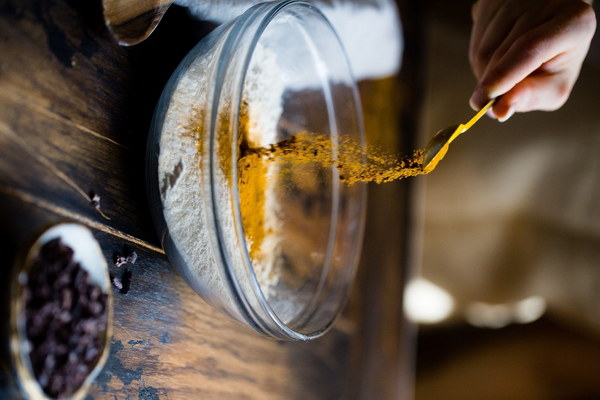The Best and Most Effective Scents for Lung Health A Guide to Aromatherapy for Respiratory Wellbeing
Introduction:
Lung health is crucial for overall well-being, and maintaining it can be achieved through various means, including diet, exercise, and aromatherapy. Aromatherapy, the use of essential oils for therapeutic purposes, has gained popularity in recent years. This article will explore the best and most effective scents for lung health, providing insights into how aromatherapy can help improve respiratory function and well-being.

1. Eucalyptus:
Eucalyptus is a well-known essential oil for its respiratory benefits. It contains cineole, a compound that helps to thin mucus, making it easier to expel from the lungs. Eucalyptus oil can be inhaled directly from a diffuser or blended with a carrier oil for a topical application. It is particularly beneficial for individuals suffering from bronchitis, asthma, or congestion.
2. Peppermint:
Peppermint oil is another excellent choice for lung health. It contains menthol, which has a cooling and decongesting effect on the respiratory system. Peppermint oil can help alleviate symptoms of cough, cold, and sinusitis. To use, combine a few drops of peppermint oil with a carrier oil and apply topically to the chest or inhale through a diffuser.
3. Lavender:
Lavender oil is renowned for its relaxing and calming properties. It can help reduce stress and anxiety, which may contribute to respiratory issues. Additionally, lavender oil has anti-inflammatory and expectorant properties, making it beneficial for those with respiratory conditions. Inhale lavender oil directly from a diffuser or apply it topically to the chest and neck for relief.
4. Tea Tree:
Tea tree oil is a powerful essential oil with antimicrobial properties. It can help fight respiratory infections, such as bronchitis and pneumonia, by killing bacteria and viruses. To use, dilute tea tree oil with a carrier oil and apply topically to the chest or inhale through a diffuser.
5. Thyme:
Thyme oil is rich in antioxidants and can help boost the immune system, making it an excellent choice for respiratory health. Thyme oil can help alleviate symptoms of bronchitis, pneumonia, and cough. Inhale thyme oil from a diffuser or apply it topically with a carrier oil to the chest and back.
6. Frankincense:
Frankincense oil has been used for centuries in traditional medicine for its respiratory benefits. It can help reduce inflammation, improve lung function, and boost the immune system. Frankincense oil can be inhaled directly from a diffuser or applied topically to the chest and back.
7. Ravensara:
Ravensara oil is a lesser-known essential oil that offers significant respiratory benefits. It contains cineole, similar to eucalyptus, which helps thin mucus and clear the respiratory tract. Ravensara oil can be inhaled from a diffuser or applied topically with a carrier oil to the chest and neck.
Conclusion:
Aromatherapy can be a valuable tool for improving lung health. By incorporating essential oils such as eucalyptus, peppermint, lavender, tea tree, thyme, frankincense, and ravensara into your daily routine, you can experience relief from respiratory symptoms and promote overall well-being. Always remember to use essential oils with caution, as some may cause irritation or allergic reactions. Consult with a healthcare professional before starting any new aromatherapy regimen.









